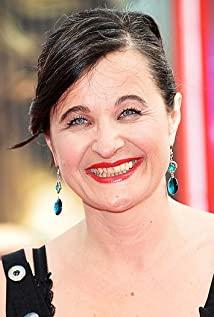"Heaven: Love" is the first part of the "Heaven Trilogy". The theme of the film is not new, but it can be said to be the most realistic of its kind in terms of expression. The film is full of a lot of straightforward nudity. I am afraid that this kind of film can only be allowed in a country with the most free and open ideas. The protagonist of the story is Margarete Tiesel (Margarete Tiesel), who is more than fifty years old. She came to Kenya for vacation. In the process, she initiated a revival of love. The director of this film is Ulrich Seidl (Ulrich Seidl), who is famous for his movie "dog days". Seidel always likes to use a mix of professional and amateur actors to shoot, and this film is no exception. All Kenyan roles are played by amateur actors. So this film is shrouded in a documentary tune. The collision between professional and non-professional actors in "Paradise: Love" also produced unexpected and convincing effects, especially Tereza's persuasive temptation of a black buddy, showing a woman's true and fragile desire. Restore the truth of the love veil in this seemingly heavenly country.
You will sigh foresight while watching the movie. After setting up her daughter, this woman serving the disabled left Austria and came to Kenya. Induced by chance to meet friends, join the ranks of sugar mama. On the edge of this dreamlike paradise beach, she felt the love and desire she deserved. This is a paradise that she has never dared to expect, where she can do whatever she wants, and the local young men will do their best to please these young women, provided that both parties reach a fair price. Tereza wasn't quite used to it at first, and she would be uneasy. When she met Manga, all her emotions and bodies had already been prepared, so everything started naturally. Manga's thoughtfulness made her feel that the lost youth had given a roundabout, and that feeling made her deeply addicted and sinking deeper and deeper. The illusion of love soon shattered, and Manga began to take it greedily, with various excuses. The disillusioned Tereza didn't seem to be discouraged. She began to squeeze joy from other men more and more unscrupulously, but it was even more difficult for her to dispel loneliness. Her soul wandered and stretched towards the core of suffering.
The film’s narrative is divided into two dimensions. From the perspective of being a human being, Tereza does not seem to be pitiful as a representative of exploiters, but she is pitiful; black youths, as exploited, seem to be pitiful. But their idleness shows the hatefulness of poor people. From the perspective of the social environment, the language of the film makes no secret of the neo-colonial composition. The whites and blacks on the beach are always separated by ropes and security. It is like the epitome of international relations in reality, representing that the Western world under economic control and the non-Western world are so difficult to blend. The aging white women came to Kenya to have fun and left, but the young black people still rushed to them. It is as if non-Western culture has become the embellishment of Western life, while Western forms and fashions are often the focus of non-Western imitation, pursuit, or wanting to stop. Back to the movie title "Heaven: Love", love is definitely not love here, so where is heaven? For the non-West, the West is like a paradise; for the West, the non-West has become a Utopia of Western wonders.
Public number: Ding Shen Deng
View more about Paradise: Love reviews









